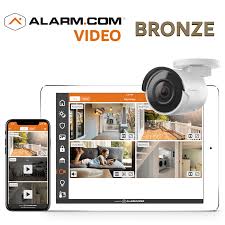The Benefits of Home Video Surveillance
Home video surveillance systems have become increasingly popular in recent years, and for good reason. These systems offer a range of benefits that can help enhance the security and safety of your home and family. Here are some key advantages of installing a home video surveillance system:
Deterrence of Criminal Activity
One of the primary benefits of home video surveillance is its ability to deter criminal activity. The presence of cameras on your property can act as a powerful deterrent to potential intruders or burglars. Knowing that their actions are being recorded can make criminals think twice before attempting to break into your home.
Monitoring and Remote Access
Modern home video surveillance systems allow you to monitor your property remotely using your smartphone or computer. This means you can keep an eye on your home while you’re away, giving you peace of mind knowing that you can check in at any time.
Evidence Collection
In the unfortunate event that a crime does occur on your property, having video footage can be crucial for law enforcement investigations. Video evidence can help identify suspects, provide details about the incident, and increase the chances of apprehending the perpetrators.
Protection Against False Claims
Home video surveillance can also protect homeowners against false claims or disputes. In case of accidents or disagreements with neighbors or service providers, having recorded footage can help clarify what actually happened and prevent misunderstandings.
Peace of Mind
Above all, home video surveillance provides homeowners with peace of mind. Knowing that you have an extra layer of security in place to protect your loved ones and belongings can significantly reduce stress and anxiety related to home security.
In conclusion, investing in a home video surveillance system is a proactive step towards enhancing the security and safety of your home. With its deterrence capabilities, monitoring features, evidence collection potential, protection against false claims, and overall peace of mind benefits, it’s clear that home video surveillance is a valuable addition to any modern household.
Top Home Security Cameras: Choosing the Best, Understanding CCTV vs. Video Surveillance, and Recording Features Explained
- What is the most secure home security camera?
- Which security camera is best for home?
- What is the difference between CCTV and video surveillance?
- Do home security cameras record all the time?
What is the most secure home security camera?
When it comes to determining the most secure home security camera, several factors come into play. The level of security provided by a camera depends on various features such as encryption protocols, data storage methods, remote access security measures, and firmware updates. Additionally, reputable brands that prioritize customer data protection and offer robust cybersecurity features tend to provide more secure options. Ultimately, the best choice for the most secure home security camera will vary based on individual needs and preferences, so it is essential to research and compare different models before making a decision.
Which security camera is best for home?
When considering the best security camera for your home, it’s essential to evaluate your specific needs and priorities. Factors such as resolution quality, field of view, night vision capabilities, storage options, and remote access features should all be taken into account. Popular options include wireless cameras for easy installation, outdoor cameras with weatherproofing for exterior monitoring, and smart cameras that integrate with home automation systems. Ultimately, the best security camera for your home is one that meets your individual requirements for functionality, reliability, and peace of mind in safeguarding your property and loved ones.
What is the difference between CCTV and video surveillance?
When it comes to home security systems, a frequently asked question is about the difference between CCTV and video surveillance. CCTV, which stands for Closed-Circuit Television, refers to a system of video cameras that transmit signals to a specific set of monitors for surveillance purposes. On the other hand, video surveillance is a broader term that encompasses various types of video recording and monitoring technologies, including digital and network-based systems that can be accessed remotely. While CCTV is a specific subset of video surveillance, the main distinction lies in the technology and scope of application, with CCTV typically referring to traditional analog camera systems and video surveillance encompassing a wider range of digital and networked solutions for monitoring and recording activities.
Do home security cameras record all the time?
Home security cameras can be set up to record continuously or based on specific triggers such as motion detection. The recording method depends on the settings and preferences of the homeowner. Continuous recording provides a constant stream of footage, while motion-activated recording saves storage space by only capturing video when movement is detected. Homeowners can choose the recording mode that best suits their needs for monitoring and security purposes.

